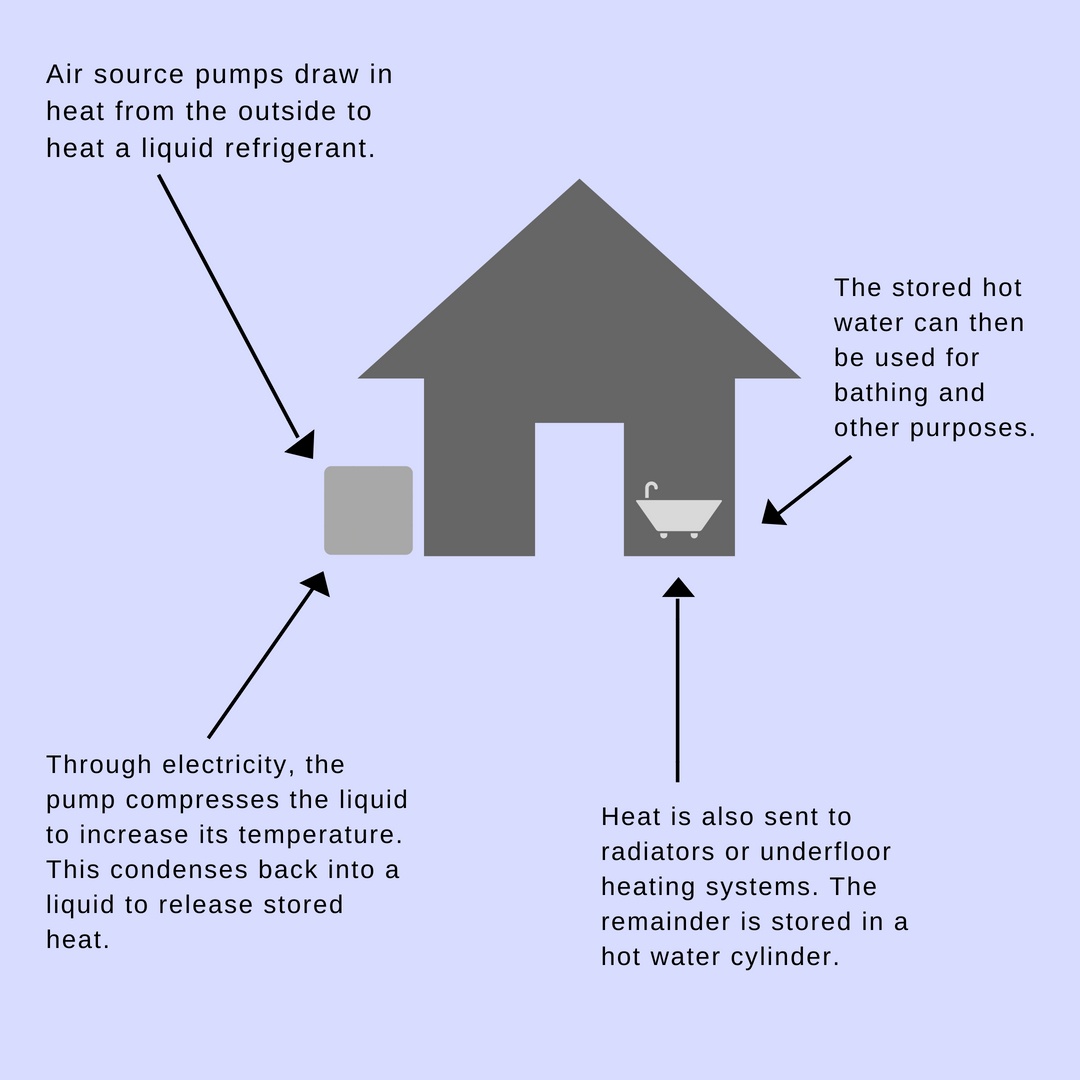With heat pumps taking up centre space in the talk on energy-efficient heating solutions, air source devices represent a significant area of debate and discussion. When it comes to heat pump options, it always pays to know which is most suited to your home before you make a final decision. Today, we look at everything related to air source heat pumps - how they work, performance and efficiency, as well as in which kind of climate these devices perform better.
If you’re keen to find out if this device is the best pick for you and your property, our blog this week is sure to provide you with all the answers. Keep reading for more!
How they work
Given that heat pumps use the air from the external environment in order to power up a property’s heating, cooling, and hot water requirements, these devices are usually placed outdoors. The pump itself requires electricity to run, although usage is slight compared to the heat it produces.
Temperature above absolute zero contains even the most minute amount of heat, and air source heat pumps can extract this heat, even from temperatures as low as 15℃. This process takes places through vapour compression, where hot air is transferred from one place to another. The pump contains two exchanger coils, one that captures hot air and the other that pushes this air through a heating system.
These devices generally work better in hot climates, as this is where it is most effective and efficient. For colder climates, ground source heat pumps options are a better choice, given that heat is drawn through pipes from the ground below.
The image below provides a succinct overview of how air source devices work.
.jpg?width=835&name=I'll%20owl-wayslove%20you!%20(1).jpg)
Types of Air Source Heat Pumps
Air-to-water systems
Here, heat is taken from the outside and supplied into a wet central heating system. Given that the heat produced is cooler than from a traditional boiler, it may be necessary to installer more powerful radiators or underfloor heating systems in a given property.
These devices tend to cost less when fitted into new properties especially when included as part of the building specification.
Air-to-air systems
These devices extract heat from the external environment and disperse it through fans. Unlike air-to-water systems, these do not produce hot water.
Cost-efficiency
When it comes to Air Source Heat Pumps, the time it will take for you to enjoy investment returns depends on just how efficient your system is. This, in turn, will be based on factors including the heating system that’s being replaced, how much money you spent on your device, and how you use your pump.
When it comes to energy savings, heat pump options cut down cost exponentially if you are replacing an LPG boiler system.
Energy Efficiency
In terms of efficiency, air source heat pumps blow traditional competitors, such as oil boilers and fuel heating systems, out of the water. This is because it utilises a freely available, renewable source of energy to provide a property with supreme comfort.
By opting for an air source heat pump, you lower the carbon footprint of your property, the extent of which, however, once again depends on the fuel you are replacing. If you are replacing an entirely electric system with your new heat pump, for instance, CO2 emissions will be greatly lowered as a result. This reduction is less dramatic when it comes to replacing natural gas devices.
Further, if your home is powered up by solar energy, or other renewable sources of power, it’s possible to enjoy increased savings in this process.
Key Takeaways
For those of you who wish to convert your property into green, comfortable, and energy-efficient space, air source heat pump options represent technology you can trust.
With its high scores of energy savings, energy efficiency, and cost-effective nature, there’s little to ponder about when it comes to choosing a heating system for your home, office, or commercial building.

